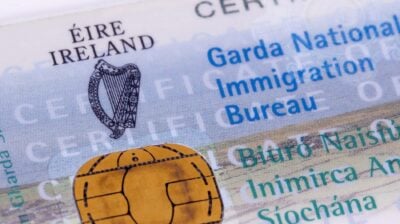Being deported in Ireland: Advice and Support
The MRCI offer information for undocumented people living in Ireland

These materials have been prepared by the Migrant Rights Centre Ireland (MRCI) for information purposes only with no guarantee as to accuracy or applicability to a particular set of circumstances. The materials are not intended and should not be considered to be legal advice. The information given may change from time to time and may be out of date. The Migrant Rights Centre Ireland disclaims any legal responsibility for the content or the accuracy of the information provided. MRCI is not a practising law centre.
This article answers the most common questions the MRCI get from people who are undocumented living in Ireland and who have come to the attention of immigration authorities. This information is for people who are over 18. Information for young undocumented people who are under 18 can be found in our Rights section.
If you are unsure of your rights as an undocumented young person it is important to avoid taking risks and if you need help, to contact the MRCI. Their services are free, safe and private. You can also become a member of Justice for the Undocumented, meet other undocumented people and campaign for a pathway to papers for undocumented people, their families children and young people. You can email youth worker, Mairéad, [email protected] for more information. Living as an undocumented young person can be tough. It is important to try and stay safe and know that you’re not alone.
What is a Section 3 letter?
A Section 3 letter, or three option letter, is a process individuals could be placed on, if they have come into the attention of immigration authorities while undocumented in the State. MRCI advises individuals to not ignore this, and contact MRCI as soon as possible.
This letter, gives you three options:
- To agree to deportation
- To apply for Leave to Remain on Humanitarian grounds
- To return voluntarily to your country of origin
You will need legal representation to apply for leave to remain and the MRCI can recommend one for you. You need to ask how strong your case is and what the fee will be.
What is Leave to Remain on Humanitarian grounds?
The Humanitarian Leave to Remain application, is an appeal that you can make which the Minister for Justice and Equality is required to take into consideration. The appeal is based a number of humanitarian grounds, such as: history in the State, your age, how long you have lived in Ireland, if you have family here and any relevant factors from your country of origin. The Minister must review this grounds when deciding whether or not you may stay in Ireland.
Can I enter this process voluntarily?
Yes you can but it is very difficult to be successful and should only be a last resort. MRCI can give you advice on your chances of success to help you make an informed decision. It can take between one month and three years for response. You should always view and keep a copy of your application. Make sure to follow up on your application and notify INIS, The Department of Justice and Equality, on any change of address/contact details.
What happens if I am refused humanitarian leave to remain from Section 3?
If you are refused humanitarian leave to remain you will be issued with a letter stating the refusal. The MRCI do not recommend you ignore this letter or hide and instead recommend you report to the Gardaí on schedule. You can apply for revocation or injunction through a solicitor. This means that you can apply to have the ruling cancelled or reversed. It is very hard to overturn a deportation order as this requires extensive legal work. Contact the MRCI to see if you have a case.
If you hold a deportation order and have been recently in contact with the police following an investigation at your workplace or other place, please remember the following:
- You may have been issued a deportation order in the past without your knowledge. This may be for a number of reasons; you could have failed to respond to correspondence as a result of changing your address or post not reaching you
- Once you have been issued a deportation order, you are required to comply to certain terms. These include living at one single address and telling the authorities of any change. If you do not do this, you will be categorised as “evading a deportation order”, which means you are not following the order and you could be arrested
If you are arrested and detained, remember that you are entitled to an interpreter and a phone call. You are also entitled to engage a solicitor at your own cost.
The maximum time they can detain you is eight weeks, after which they should either deport you or let you go. If you are released you should comply with the terms and conditions given, such as living at the address you have given them.
What is a Section 14 Notice?
You can be given a Section 14 Notice if you come to the attention of an immigration officer, meaning they have found out that you are undocumented. If this happens your passport will be taken from you and they will issue you with a document called a ‘reporting mechanism’. You will be required to report to the GNIB (Garda National Immigration Bureau) on the date on the document. It is very important that you do not ignore this document, and follow the reporting. Please ask for help and advice from MRCI or a solicitor if this happens.
Need more information?
Are you undocumented and under 25 in Ireland? Want to find out more about your rights and what supports MRCI can offer? E-mail youth worker Mairéad at [email protected].






